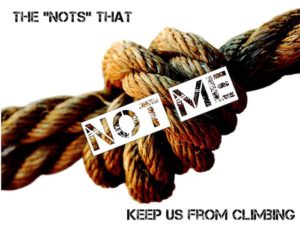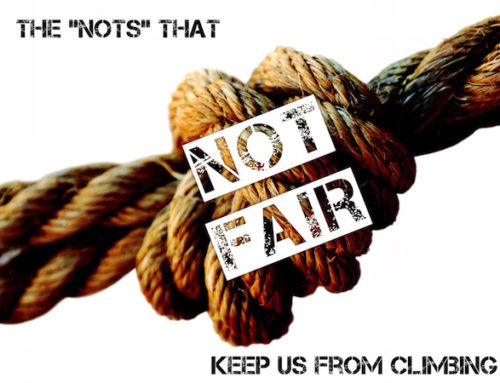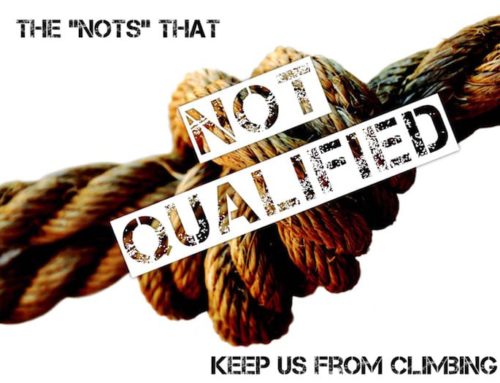
Sometimes identifying who spoke last was difficult. In fact, if you were really sneaky and didn’t react at all, you could get away with being last. Sometimes that was the safest way to go. Just sit there and act cool while everyone pointed at the guy who reacted late and don’t say a word. Most of us weren’t hip to the calm and cool technique then. We are now.
God has given us more power than many of us dare to wield. Most of us would rather talk about how somebody should do something than be the ones to actually do it. We’re quick to call out, “not it.” Jesus’ brother James tells us,
“If anyone, then, knows the good they ought to do and doesn’t do it, it is sin for them.” – James 4:17
“Not me” is third not often tying us down. Two times we typically fall into the, “not me” category are when we’re in a crowd or when we’re not in charge. Think back to the times in your life when a volunteer has been called for. The silence usually has to get pretty awkward before a hand goes up. Not so with children. They haven’t yet learned to stay silent and mind their business. Have you ever been told to do something you didn’t agree with? Chances are, if the asker was in charge, you had a hard time saying know if you were able to at all. That’s why God put men in authority over women after the apple incident. Just kidding.
When we’re in a crowd, we tend to think someone will take care of the problem we all notice but pretend doesn’t exist. If we’re really conscientious we’ll tell someone about the problem. Many, in psychological circles, call this the spectator or bystander effect. There’s a puddle in the bathroom floor at church. That’s someone else’s job. I’ll tell the preacher. Think through that scenario for a bit. Did Christ say, “Be aware of your opportunities. That is enough.” No we’re called to action even as we tend towards inaction. Check out this video illustrating the effect in action. Dream with me for a second. How would our world be different if we all stood up against the everyday abuses we see go on around us everyday? Would more people stand alongside us?
A cousin of the spectator effect is the authoritative effect. It’s not the proper term. That’s just my verbage in action. It reflects our tendency to absolve ourselves of responsibility if someone more qualified is in the area. “What’s that? Go ahead and throw the unused money in the trash? Seems like such a waste but, you’re the boss.” Look at Adam’s excuse to God and this is yet again proof that Eve was seen as in charge. (Have I worn that out yet?) Stanley Milgram, in 1961, illustrated this beautifully in a shocking experiment. He took three people, an authority, a subject, and an administrator and set up this scenario. The authority, dressed in medical uniform, asked the administrator to apply a shock in increasing 15 volt increments to the subject when incorrect answers to word pairs were given. If the administrator became uncomfortable the authority would encourage him to continue. In the test, in spite of their discomfort, up to %65 of participants administered a fatal 450 volt shock. Unbeknownst to the administrators the subject was actually faking his screams of pain and protests to stop. Milgram would argue the possibility that some Nazi war criminals might have indeed been, “just following orders.” Here’s a 3 part video reimagining the experiment.
Who is our authority? What if we, like Peter in Acts 5:29, decided that we must obey God rather than men?




